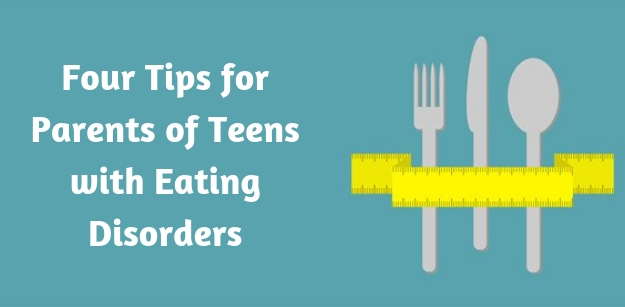An eating disorder diagnosis or suspicions of an eating disorder in teens can raise many questions for everyone in the family. As parents, there may be questions of, How this could happen to our young child? Are we responsible? How can this be treated? While eating disorder treatment should be at the top of the priorities list, there are several other ways parents can help to care for their teens as they begin their journey toward recovery. Whether parents have just started to see the warning signs, or have been contemplating the need for residential programs for teens nearby, with some patience and understanding, families can provide the support needed to see teens through the treatment process.


Five Helpful Tips for Parents of Teens with an Eating Disorder Diagnosis
1. Offer Support
Many teens are searching for their identity during adolescence; and teens with eating disorders may need a bit of extra support during this stage in life. It is very possible some teens may see their eating disorder as part of their identity and hold those disordered eating behaviors very close. Eating disorders in teens are not only complex but should be handled with compassion and delicacy as families look at eating disorder treatment centers.
2. Make Sure They Take Time to Recharge
Making sleep and downtime a priority is also very important as families navigate eating disorders in teens. Eating disorder treatment will not be a cakewalk for anyone involved and if teens are not taking the time to recharge properly, navigating treatment can be more difficult than necessary. Residential treatment programs for teens offer a structured schedule that includes plenty of time for sleep and relaxation. But if teens are in an outpatient program, parents should help create a balanced schedule.
3. Monitor Eating and Exercise Behaviors
This is important for parents of teens with and without an official eating disorder diagnosis. No one likes every food or meal that is placed before them, but cutting out entire food groups and yo-yo dieting can be early warning signs of an eating disorder. Similarly, a compulsive need to exercise can also be a warning sign. And once a teen has been medically cleared for movement after completing eating disorder treatment, their habits should still be monitored and communicated with their parents.
4. Allow for Privacy
There are few things worse to a teen than living with a lack of privacy. The adolescent years are a time of many big changes and sometimes, teens simply need a bit of privacy to figure things out on their own. But when families are trying to navigate eating disorders in teens, privacy can be frightening. As teens earn back trust following eating disorder treatment, it is healthy for parents to allow them to enjoy slowly increasing levels of privacy.
Learn More About Clementine Eating Disorder Treatment Centers
Eating disorders are serious mental health conditions that can result in many changes for teens and their loved ones. Clementine residential treatment centers for teens offers support for families, as well as both medical and psychiatric care in a home-like setting. Interested in learning more about our eating disorder treatment centers? Call 1.855.900.2221 today for more information.



